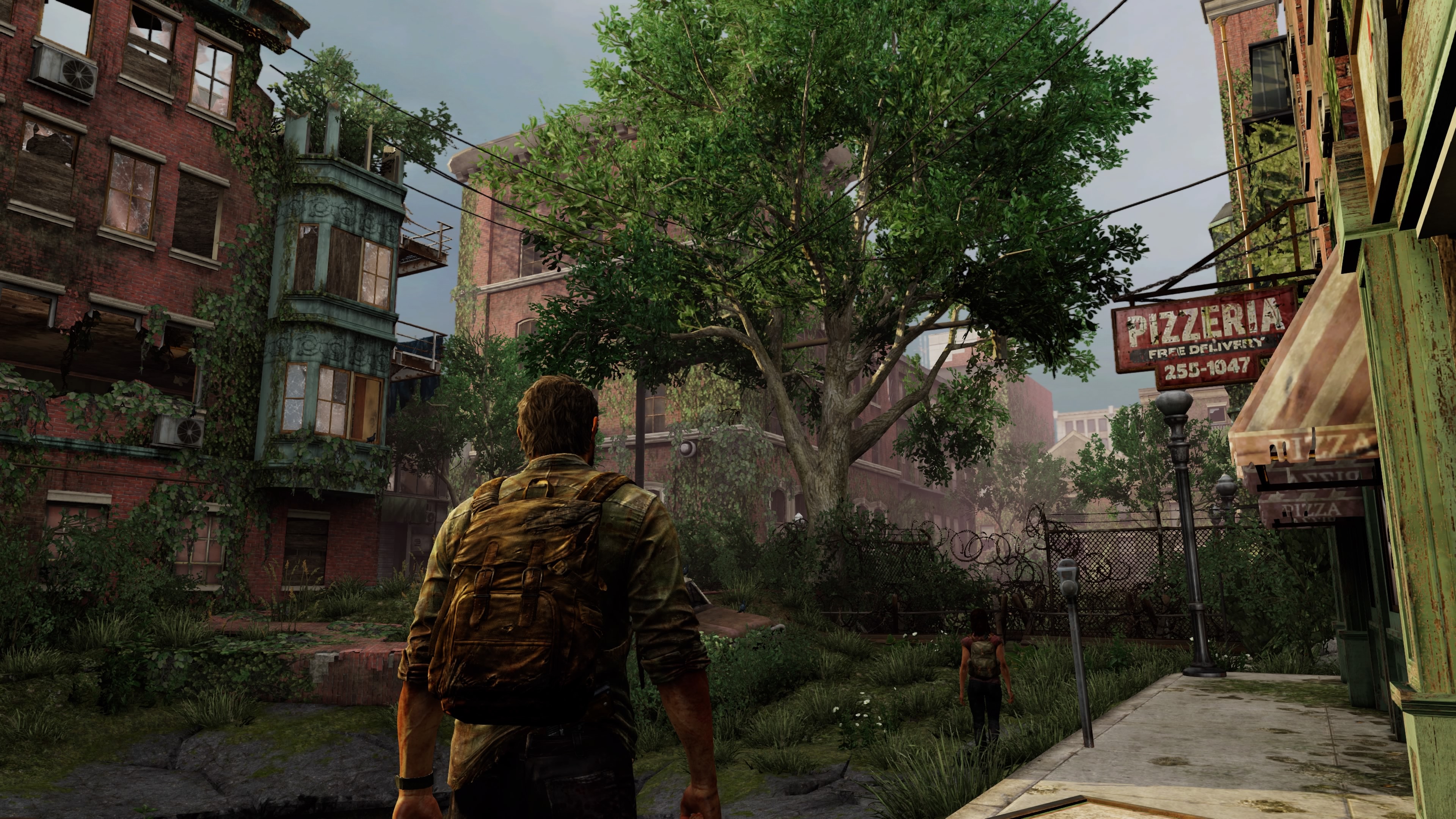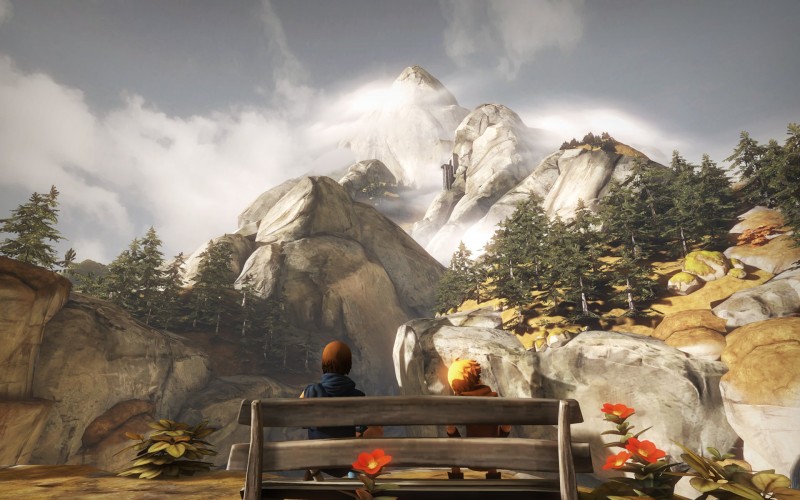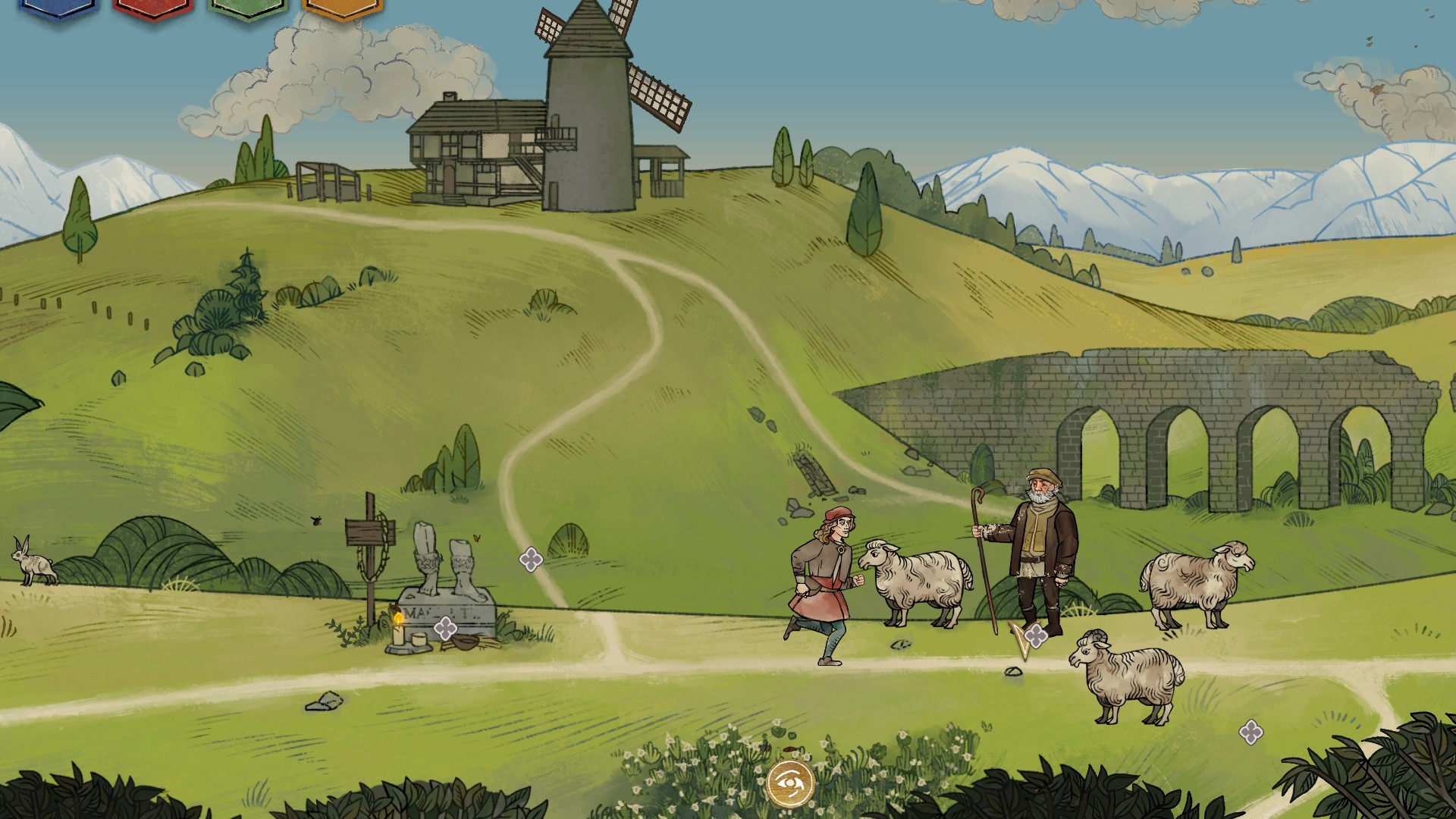Compared to other media, in video games, we spend a whole lot of time walking. What is often little more than a few sentences in a book or a single cut in a movie, players of games might spend whole minutes, hours just… traversing space.
It might seem boring. To non-game players, it might seem pointless. “It’s just a lot of walking around, isn’t it?” And it isn’t even physical exercise! We’re just holding down a button or wiggling a joystick.
And sometimes, games try to cut down on or remove the walking. Give the player the ability to “fast travel”, just click a point on a map and go there instantly. Or some games try to get rid of the need for that all-together and make games that become cinematic sequences we interact with occasionally. These attempts at best try to control the pacing through other means than architecture, and at worst become little more than a sad emulation something other than games. Walking is often seen as a necessary evil. Something we endure to get to the “good stuff”.
But in this blog, I would like to make a case for the simple act of walking around in games and explain why it matters. Because video games are, truly, just a whole lot of walking around. And that’s a good thing.

I, like everyone and their distant relative, have been watching HBO’s The Last of Us. I played the games, too, when they were new. I like them both, and I like the show too. But it is no surprise what the TV show cut from the game: The walking (ok the extended combat sequences, too, but let me do my bit here). The exploration. The slow scavenging of a house after a fight, to make sure you picked up all the resources. Read the odd notes you find on the fridge. The little details you get to ponder on for as long as you bother to linger. The silly interactions you have as you struggle to move properly through a door or miss a button prompt to pick up an item. Ellie’s idle animations. Your quiet glee as you find just the tool you were looking for to upgrade your weapon. The slow, quiet movement through an abandoned, serene street at dusk.
See, video games have an ability that no other media has: It gives the audience the ability to linger. To exist. To be.
In LA Noire, there is an option to skip the driving
sequences, to just bounce to the next beat of the detective story. Playing that
way turns the game into a TV crime show, with each new cut hitting the next story-point,
no dead air in between. I cannot fathom playing the game that way. I drove
everywhere. Slowly. Taking my time. Taking in the atmosphere. Thinking about
the case. Being in the space. Living, for a little bit, like a detective
in LA. Not watching someone else on screen be one.
And that is the crux of it: Walking is the fundamental way
we exist in game worlds. It is how we can be in them. Inhabit
them. Video games is the only medium you can be
inside.

At the ICIDS conference in 2015, my very first academic
conference, Chris Crawford gave a keynote. You don’t need to know who he is,
but just know he is one of the “old men” of video games. He’s been around
forever. And he’s tried to “solve” interactive storytelling for a long time.
And one thing he mentioned in that talk has stuck with me. He said that one of
his primary gripes with games and why they couldn’t do storytelling as well as
other media was their obsession with physical movement through space. Every game requires you to go here and do that and move back
and physically trudge through an environment to do what in a movie they would
have done in a montage. Compared to other storytelling media, games are
horribly inefficient with their time.
And… back then I agreed with him. I saw the point he was
saying.
However, as I have grown my thinking on games, I have come
to distance myself further and further from that statement.
Video games are not too reliant on space. They are
space. You cannot separate one from the other. Remove the movement and you
remove the game. Remove the movement and you get… well, a movie. A TV show.
And movies are fine! Good, even! But they are something other
than a game. If we want to tell stories in games, we have got to keep games
what they are. Games are fundamentally about space, and the way we understand that space is by being in it. And the fundamental way we do so is through walking.
Why "walking", you may ask? Why do I not insist on being?
Because space is a function of time. A space is large because it takes time to
traverse. A space is small when it does not. Space, then, without movement, is
meaningless.
If it is not clear already, I am using “walking” as a
shorthand. In most games, what I call “walking” in games is technically “running”
because most video game protagonists have legs stronger than an Olympian’s. But
I also mean swimming. Or driving. Or flying. Etc. Traversing is the
general term. But I use the word walking here because it catches the mundanity
of it. Because while I have just shown how it is vital to games, that does
not make it extraordinary. In fact, it makes it rather ordinary.
Walking is just walking, after all. It is not a problem to
be solved, it is not a challenge. It is not a plot point or a skill-check. It
is simply the way we experience space.
It is the written word of books. It is the rolling film of
the camera. It is the stage of theatre. It is the walking of games.

I played Pentiment over the Christmas break (damn, what a game. Just, holy hell, I can’t stop thinking about it). And that game, despite being fairly small in scale, has a whole lot of walking around. Walk up to the abbey. Have lunch with the abbot. Walk back down to the village. Talk to the farmers. Walk to town. Talk to the local doctor. Walk back to the forest. All of these individual walking sections would have been cut had I written this story as a book. But what they add to the game is fundamental to its experience. Because, after having played Pentiment, I have not just experienced a story of a village. I have experienced the village itself. I know that place. I know how to get around it. I know the shortcuts. Where the twins would hang out after lunch. How to navigate through the abbey to find the crypt, find that place where the monks had a secret affair. I could draw it for you, describe in detail how to go from A to B. Because I have been there.
I can still load up Grand Theft Auto IV and mostly find my way around that city without using the GPS, because I have spent so long driving around those streets. I know them, because I have been there.
One of my parent’s fond stories to tell about my childhood is how we went to Florence after I had played Assassin’s Creed 2, and, through the knowledge I had gained in that game, could guide them around the real-life city. Because I had already been there.
If I could have teleported around Pentiment, if I had only
blindly followed the GPS in GTA IV, if I had watched a supercut of all the
cutscenes from Assassin’s Creed 2, I would not have been able to do those
things. I would not have inhabited those spaces and they would have only been a
backdrop to a story. I could have experienced something that approximates those stories nevertheless but I would not have played a game.
Because storytelling in games is not about time. Movies and tv and music are all about time. But games are about space moreso than they are about time. In that way, they are more like painting, or dioramas or architecture. It is a space you can walk around in. It is a space you can not walk around in. And it changes over time. But it is first, a space, and the change happens second. You can stop and look, and then all that exists is the space. Entirely for you to walk around in.